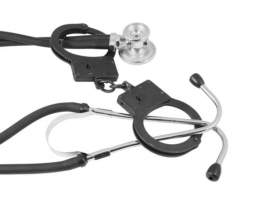
Know Your Hospital's Practice Guidelines

Popular In Malpractice
Malpractice Attorney Contributory Negligence Malpractice Law Overview Statute Of Limitations Standard Of Care Medical Malpractice Defense Good Samaritan Acts Fraudulent Concealment Of Evidence Punitive Damages Proving Negligence Medical Malpractice Overview Express Implied Contracts From A Physician
Many hospitals are going through rough times as a result of a faulty economy, and skyrocketing medical liability insurance costs. Some hospitals have been forced to close as a result of economic woes in recent years; therefore, the need for clear medical practice guidelines is greater than ever before.
If all hospitals set clear medical practice guidelines and management practice techniques, the cost of medical liability insurance would go down enough to lower the total cost of healthcare. The trickle down effect is a proven reality in the hospital industry, given that there is a strong correlation between the cost of consumer health-care insurance, and medical liability insurance for hospitals.
The American Hospital Association seeks to promote accountability and transparency by using a management practice that holds doctors more accountable if they jeopardize the welfare of a patient. One such hospital management practice designed to benefit the patients is the fact that healthcare providers should be given incentive to adhere to evidence-based care, and to focus on safety and quality.
Risky and innovative medical procedures that lack scientific evidence to back their practice can jeopardize the health of a patient, and violate practice guidelines. Such care should only be provided only if the patient willfully assents to the procedure. Doctors who suggest radical treatments are taking risks contrary to the aims of many practice guidelines and management practice preferences.
Another important management practice that members of the American Hospital Association are implementing, is the quest to find sources of more compensation for medical professionals. It is a proven fact that people are less likely to perform their job well if they feel that they are not being paid well. Reasonable compensation for patients would come as a result of better doctor compensation. What is meant by reasonable patient compensation is the fact that doctors are better able to make patients "whole" after sustaining illness or injury.
In the event of a malpractice suit, reasonable compensation would also help to remedy the non-economic and economic costs of malpractice injury. Getting medicine right the first time is the priority of most hospitals. However, if a malpractice suit is brought to court, it would serve the entire community better if the claims process was not so adversarial. As a management practice, hospitals are hiring stronger legal teams to protect against malpractice suits.
Hospital practice guidelines focus on preventing malpractice suits, while management practices focus on mitigating existing malpractice suits. These strategies have been adopted by many hospitals in order to avoid closure as a result of a faulty economy, and the many years it takes to recover from a serious malpractice suit or a series of frivolous malpractice suits. The idea is to make it harder for dissatisfied patients to sue doctors that do their best to provide adequate health care at a reasonable .
NEXT: Know Your Right to Patient Confidentiality





















